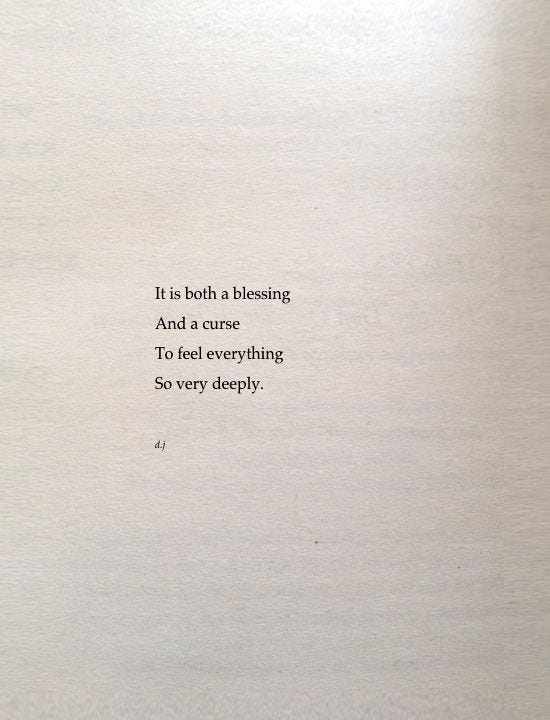My favourite kinds of books are those that most people would consider depressing. I’m drawn to flawed, unlikeable characters, messy families and relationships, and storylines that probe at what it means to be human in our most authentic and vulnerable ways. Think A Little Life, Hello Beautiful, Same As It Ever Was, Blue Sisters, The Long Answer, Intermezzo…these are just a handful of recent titles off the top of my head that gave me that quintessential *this is why I read* feeling. And learning this basic yet fundamental aspect about myself—both as a human being and as a reader—has given way to a new kind of freedom and creativity as a “public” reader, to borrow
’s term. For me, reading isn’t necessarily an escape; it’s a means of connecting more profoundly with stories of human experience, even when—and precisely because—these stories are raw and uncomfortable.But first, let’s back up a little. 2024 was a difficult year for me personally, and even more so as a reader, writer, and graduate student. I have been reading and writing about books in the internet since the spring of 2019, but I’ve been a graduate student for even longer; a huge part of my identity has always been inextricably linked to academia (particularly the humanities and social sciences) and the rhythmic, almost meditative, rituals that came to define my reading, research, and writing life—the fresh stack of essays and journal articles still warm from the printer, the 0.38 point gel pens perfect for underlining and taking notes, the colour-coded Zebra Mildliners, sticky tabs, Moleskine lined notebook and post-it notes I’m never without…read once without annotating; read a second time to underline, highlight, take notes. These clearly-defined habits and rituals gave my research & reading a sense of purpose that felt steady and predictable, an anchor to the work and writing that would follow.
What, then, was my fiction reading life supposed to look like? Over the years, it has often felt fluid, amorphous, and at times confusing. How was I supposed to approach it? Should I be annotating novels with an eye towards critical analysis or letting myself sink into the story, solely for pleasure and escapism? And, assuming these two aspects are at opposite ends of a spectrum, do pleasure/escape-reading and critical analysis have to be mutually exclusive? With these theoretical questions in mind, I’ve often felt unsure how to reconcile the structured, methodical reading practices of my academic life with the freer, more intuitive rhythms I’d always envisioned for fiction reading. This tension was further compounded by the “public” nature of my reading life—sharing books online and engaging with broader reading trends largely dictated by social media came with a sense of existential crisis and curiosity about an aspect of my life I’d always felt so certain about.
Over the last several years, there have been many iterations of myself as a reader. I’ve tried so many genres, authors, classics, and new releases in order to participate in the larger sense of community and conversation that these various trends provide. I’ve tried it all, including things I’ve known aren’t “for me” (because I’ve been critical of the very concept itself of books not being “for” particular readers). And while I’ve learned that engaging with a broader community of readers is both inspiring and a source of deep joy, my truest source of fulfillment comes from leaning into—as well as learning about—my own instincts as a reader, and in the myriad ways in which they change, grow, and are always becoming.
What about you? How has your reading life and/or readerly identity shifted (or not) over time? I’d love to hear your reflections—feel free to reply or share your thoughts in the comments below.
Until next time,






Keeping a book journal, where not only do I identify the book I read, but take notes on them if so moved, I’ve been able to see patterns. My 5 star books tend to be beautiful writing that inspires personal reflection. Ones that give insight on how others live their lives and the choices they make and why. This works for fiction as well as nonfiction.
One thing I learned last year was that one bad moment does not mean its a bad life, and I found that to be true for my reading as well. One of my reading projects had left me feeling disappointed and like I was losing my flow with the genre - but I have come to realise that I have indeed changed. Certain books, tropes or genres do not appeal to me anymore, as I am in a completely different part of my life, so they just don't resonate as much as they used to. That is probably the biggest change I have discovered when it comes to my reading identity.
And slow reading. Slow reading just changed the game completely for me as a reader :)